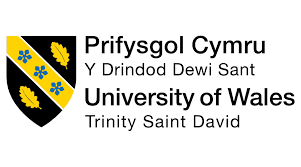104 UCAS Tariff Points
- e.g. A-levels: BCC, BTEC: DMM, IB: 31
The UCAS tariff score is applicable to you if you have recently studied a qualification that has a UCAS tariff equivalence. UCAS provides a tariff calculator for you to work out what your qualification is worth within the UCAS tariff.
GCSEs
GCSE grade A*-C (grade 9-4 in England) in English and Mathematics is also required.
Alternative entry routes
If this course interests you, but you don’t have the entry requirements to join our bachelor’s degree you could consider:
- ‘with Foundation Year’. This route is designed to give you extra support as it provides you with an additional year (full-time) of supported study.
Once you successfully complete your Foundation Year studies, you will automatically advance onto the main degree.
- Certificate in Higher Education (CertHE). This is a one-year course and is equivalent to the first year of the three year, full-time bachelor’s degree.
Once you have successfully completed your CertHE studies, you will be eligible to progress for the remaining two years of the bachelor’s degree.
These are ideal routes if you are returning to study after a gap, or if you have not previously studied this subject, or if you did not achieve the grades you need for a place on this degree.
Admissions Advice and Support
We may make you a lower offer based on a range of factors, such as your background, experiences and individual circumstances. This is known as ‘Contextual Admissions’. For specific advice and support you can contact our enquiries team for more information about entry requirements.
English language requirements
If English is not your first language or you have not previously studied in English, our usual requirement is the equivalent of an International English Language Testing System (IELTS Academic Test) score of 6.0, with not less than 5.5 in each of the sub-tests. We also accept other English language tests.
Visit the International Applications section of our website to find out more about our English Language Requirements and pre-sessional English Language Courses.
Visa and funding requirements
If you are not from the UK and you do not already have residency here, you may need to apply for a visa.
For courses of more than six months’ duration you will require a Student visa.
International students who require a Student visa should apply for our full-time courses as these qualify for Student visa sponsorship.
For full information read our visa application and guides.
Please note students receiving US Federal Aid are only able to apply for in-person, on-campus programmes which will have no elements of online study.














